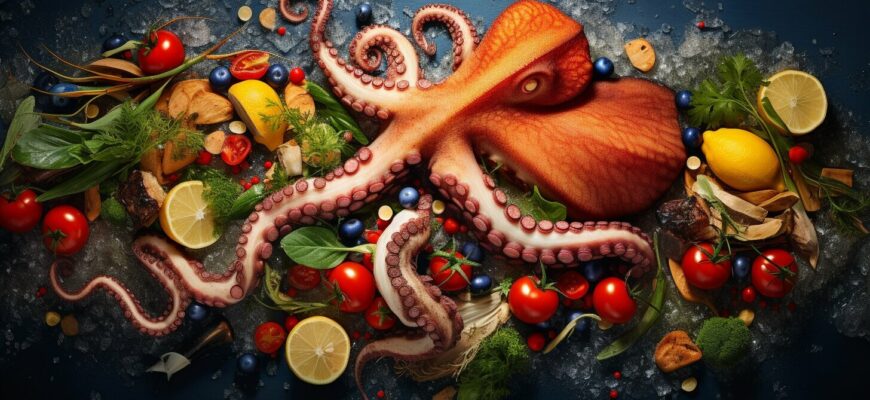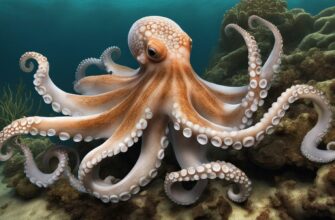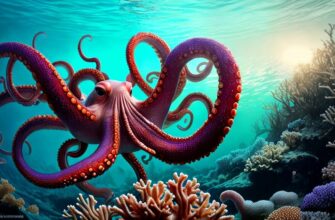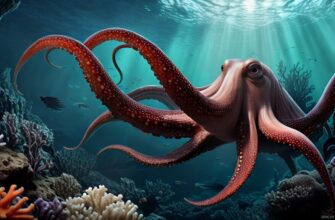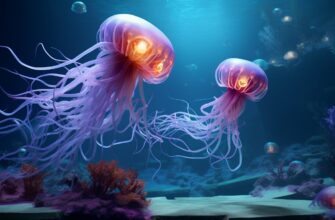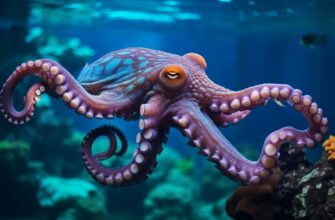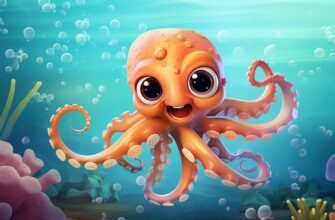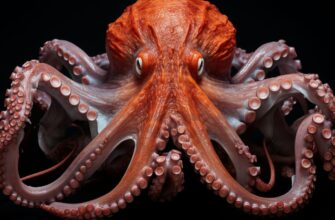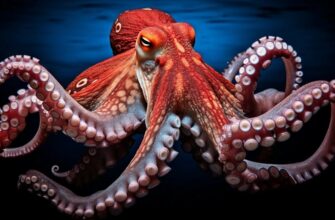Octopuses are incredibly unique creatures with fascinating abilities. One aspect of their behavior that often captures people’s attention is their diet. Are octopuses really carnivores? Understanding their eating habits is crucial to gaining a better appreciation for these creatures.
- What Do Octopuses Eat?
- What Are Some Common Prey of Octopuses?
- Do Octopuses Hunt in Different Ways?
- Hunting Techniques of Octopuses
- Examples of hunting techniques:
- Feeding Behavior and Feeding Habits
- Octopuses and Cannibalism
- Special Considerations in Octopus Diet
- Relationship Between Diet and Octopus Behavior
- Impact of Food Availability
- Feeding Strategies and Intelligence
- Connection with Environment
- Octopus Diet in Different Habitats
- Frequently Asked Questions about Octopus Diet
- Can octopuses eat anything they come across?
- What happens if an octopus eats something toxic?
- Can octopuses survive without eating for extended periods?
- Do octopuses eat other octopuses?
- What is the impact of an octopus’ diet on their health and reproduction?
- How does the food an octopus eats affect their behavior and intelligence?
- Do octopuses eat the same things in different habitats?
What Do Octopuses Eat?
Octopuses are carnivorous creatures that typically feed on live prey.
Their diet consists of a wide variety of animals, including fish, crabs, shrimp, and mollusks. They have even been known to eat smaller octopuses!
Octopuses have a highly developed sense of taste and touch, which helps them locate and catch their prey. They use their tentacles and suckers to grasp and manipulate their food, and their beaks to crush and consume it.
While they do have a preference for live prey, octopuses have also been known to scavenge for food. They have been observed eating dead animals and even trash in some cases.
In addition to their natural prey, octopuses have also been known to steal food from other animals. They have been observed stealing fish from unsuspecting divers and even raiding nearby crab traps.
What Are Some Common Prey of Octopuses?
Octopuses have been known to eat a wide variety of animals, including:
- Fish, including small sharks and eels
- Crabs and other crustaceans
- Shrimp and other small invertebrates
- Mollusks, including clams, snails, and oysters
Do Octopuses Hunt in Different Ways?
Yes, octopuses use a range of hunting strategies depending on the size and type of their prey.
Some octopuses rely on camouflage and ambush their prey, while others actively stalk and chase their food. They may also use their tentacles to trap and immobilize their prey, or to reach into crevices and tight spaces.
Overall, the diversity and adaptability of their hunting tactics make octopuses impressive predators in their underwater world.
Hunting Techniques of Octopuses
Octopuses are known for their unique and effective hunting strategies. They are masters of camouflage and often use this ability to blend in with their surroundings to ambush unsuspecting prey. Their eyesight is also highly advanced, allowing them to detect movement and pinpoint their prey with precision.
One of the most fascinating aspects of octopus hunting is their use of their eight tentacles to capture and consume food. These flexible and dexterous limbs are covered in suction cups that allow them to grasp and manipulate prey with ease. In addition to their tentacles, octopuses also have a sharp beak that they use to crush the shells of crustaceans and mollusks.
When hunting, octopuses have been observed using a variety of tactics, including stalking prey, lying in wait, and even using tools to access hard-to-reach food. Some species have also been known to squirt ink as a distraction or to confuse their prey.
Examples of hunting techniques:
| Hunting Technique | Description |
|---|---|
| Camouflage | Octopuses use their ability to blend in with their surroundings to surprise and ambush prey. |
| Stalking | Some octopuses prefer to stalk their prey, carefully following it until the right moment to strike. |
| Lying in wait | Octopuses may hide in crevices or under rocks, waiting patiently for prey to come within reach. |
| Tool use | Some species of octopuses have been observed using coconut shells and other objects to create shelters or barriers to protect themselves and access their prey. |
Overall, the hunting techniques of octopuses are a testament to their intelligence and adaptability. They are remarkable creatures with a wide range of skills and abilities that allow them to thrive in a variety of environments.
Feeding Behavior and Feeding Habits
Octopuses are known for their incredible ability to manipulate food and use their unique anatomy to consume a wide variety of prey. Their feeding behavior is fascinating to observe and provides insight into their impressive problem-solving skills.
One of the most notable aspects of octopus feeding is their use of suckers to grasp and manipulate food. This allows them to hold onto prey even when it is struggling to escape or using its own appendages to fight back. Additionally, octopuses are able to probe crevices and manipulate shells to access hidden prey that would otherwise be out of reach.
When it comes to consuming their food, octopuses use a combination of their beaks and rasping tongue-like structure called a radula to break down their prey. The beak is used to break up larger pieces of food while the radula scrapes away at the flesh, allowing the octopus to consume it more easily.
Despite their impressive abilities, octopuses are not without their challenges when it comes to feeding. One of the most significant issues they face is the need for a varied diet. Octopuses require a steady supply of fresh food sources to maintain their health and reproductive abilities. If they are unable to find suitable prey, they may become weaker and less able to defend themselves against predators.
In some cases, octopuses may also resort to cannibalism as a last resort when prey is scarce. While this is not a common behavior, it can occur when octopuses are placed in close quarters or are unable to find other food sources.
Octopuses and Cannibalism
Octopuses are known for their unique feeding habits, which sometimes include cannibalism. While it may seem strange for one octopus to eat another, this behavior is actually quite common in the animal kingdom.
There are several reasons why octopuses may resort to cannibalism. One is simply a lack of available food sources. In some habitats, such as deep sea environments, finding food can be difficult and octopuses may turn to their own kind as a last resort.
Another reason for cannibalism is competition. Octopuses are solitary creatures and often have to compete with one another for territory and resources. If two octopuses meet and one is significantly larger or stronger than the other, it may attack and consume its rival.
Interestingly, female octopuses may be more likely to engage in cannibalistic behavior than males. This is because females have a greater investment in reproduction and may view other females as potential threats to their own eggs.
Overall, cannibalism in octopuses is a fascinating and sometimes disturbing aspect of their diet and behavior. While it may seem strange to us, it is simply a part of their natural instincts and survival strategies.
Special Considerations in Octopus Diet
Octopuses are highly adaptable creatures that can survive in a wide range of environments. As a result, their dietary needs can vary depending on their specific habitat. However, there are some universal considerations to keep in mind when it comes to feeding these fascinating creatures.
First and foremost, it’s important to provide octopuses with a variety of food sources. In the wild, they consume a wide range of animals, including fish, crabs, shrimp, and mollusks. In captivity, it’s essential to mimic this diversity to ensure that they receive all the necessary nutrients.
Another consideration is the impact of diet on octopus health and reproduction. In some cases, a lack of certain nutrients can lead to health problems or even death. For example, insufficient calcium can lead to brittle shells and weakened bones.
Finally, it’s worth noting that some octopuses have unique dietary requirements. For example, some species require a specific type of crab or shrimp in their diet. It’s important to research the specific needs of a particular species before providing food.
Relationship Between Diet and Octopus Behavior
Octopuses are fascinating creatures with unique characteristics that set them apart from other marine animals. Their diet plays a significant role in shaping their behavior and influencing their intelligence and problem-solving abilities.
Research has shown that octopuses have a high level of cognitive abilities, and their feeding habits impact these abilities. For example, octopuses that consume a varied diet tend to be more intelligent and demonstrate advanced problem-solving skills.
Impact of Food Availability
Food availability also influences the behavior of octopuses. If they are unable to find sufficient food, they may become more aggressive in their hunting tactics, seeking out prey that they might not typically target. This can lead to changes in their behavior and potentially affect their longevity and reproductive success.
Furthermore, studies have shown that octopuses that receive a diet high in fatty acids tend to exhibit more aggressive behavior compared to those fed a diet low in fatty acids.
Feeding Strategies and Intelligence
The feeding strategies of octopuses, such as their ability to manipulate and probe food, also play a fundamental role in shaping their behavior. In fact, studies have suggested that octopuses’ intelligence is linked to their feeding behavior.
One study found that octopuses that were given a puzzle to solve before a feeding session were quicker to learn and solve the puzzle after being fed compared to those who were not given a puzzle before feeding. This suggests that the act of manipulating food may stimulate their brain and enhance their cognitive abilities.
Connection with Environment
The environment in which octopuses live also impacts their diet and behavior. Coastal octopuses, for example, tend to consume a diverse range of prey, while open-ocean octopuses often feed on gelatinous zooplankton.
Octopuses living in heavily fished areas may also change their feeding behavior. They may become more selective in their prey preferences and alter their hunting strategies to avoid being caught by fishermen’s nets.
In conclusion, the diet of octopuses profoundly shapes their behavior and cognitive abilities. Their ability to adapt to changes in their environment and food availability also influences their feeding habits and overall behavior. Understanding the relationship between diet and octopus behavior can shed light on their fascinating and complex lives.
Octopus Diet in Different Habitats
The diet of octopuses varies based on their habitat and food availability. In areas with a high concentration of prey, such as coral reefs and rocky outcrops, octopuses have a diverse diet, including crabs, mollusks, shrimp, and fish. But in areas with fewer options, they may have to rely on a narrower range of food sources, such as small crustaceans and shellfish.
Octopuses are also known for their adaptability, and they are able to change their feeding behavior to suit their surroundings. For example, in shallow waters, octopuses may prefer to hunt during the day when predators are less active, while in deeper waters, they may hunt primarily at night.
| Examples of Octopus Diets in Different Habitats: | |
|---|---|
| Rocky reefs and coral outcrops | Crabs, mollusks, shrimp, fish |
| Sandy or muddy bottoms | Small crustaceans, bivalves, worms |
| Deep ocean | Small fish, squid, and octopuses |
Octopuses are opportunistic feeders, and they are able to adjust their diet based on what is available in their environment. This flexibility allows them to survive and thrive in a wide range of habitats, from shallow, rocky reefs to deep-sea trenches.
Frequently Asked Questions about Octopus Diet
Octopuses are fascinating creatures with complex eating habits. Here are some commonly asked questions about their diet:
Can octopuses eat anything they come across?
No, octopuses are selective about their food. They have preferences for certain types of prey and will avoid others. Additionally, some foods may be toxic to them and can cause harm or death.
What happens if an octopus eats something toxic?
If an octopus consumes something toxic, they may experience negative health effects or even die. It is important to monitor their diet and ensure they are only eating safe and suitable prey.
Can octopuses survive without eating for extended periods?
While octopuses can go without food for a period of time, it is not recommended to starve them intentionally. They require a balanced and varied diet to maintain their health and well-being.
Do octopuses eat other octopuses?
Yes, cannibalism is not uncommon among octopuses, particularly in situations where food is scarce. Larger octopuses have been known to prey on smaller ones.
What is the impact of an octopus’ diet on their health and reproduction?
An imbalanced or insufficient diet can have negative effects on an octopus’ health and reproductive capabilities. It is important to provide them with a varied and suitable diet to ensure their overall well-being.
How does the food an octopus eats affect their behavior and intelligence?
An octopus’ diet can impact their overall behavior and intelligence. A varied and stimulating diet can help to promote problem-solving skills and cognitive development. On the other hand, a limited or unbalanced diet may lead to lethargy or other negative behaviors.
Do octopuses eat the same things in different habitats?
No, the diet of an octopus may vary depending on their habitat and the availability of suitable prey. Octopuses are adaptable creatures and will seek out different types of food based on their environment.

